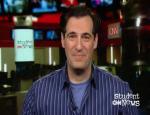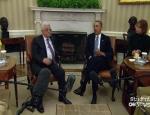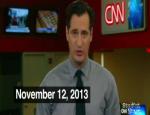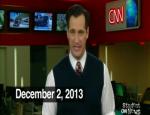CNN Student News 05/02/2014
Nội dung bài
Bài học đã được dịch, bạn hãy đưa chuột vào các câu tiếng anh để xem.
CARL AZUZ, CNN ANCHOR: Technology is the theme this Wednesday on CNN STUDENT NEWS.
Thank you for watching.
We`ve got reports involving Internet connectivity and Internet behemoth safety for travelers.
We want to get to it as soon as we can dig out from all of this snow.
Well, not in Atlanta. But the U.S. Midwest and Northeast are getting are one-two punch this week.
PLAY
Sounds familiar? They`ve had a wicked winter. This time around, some Northeast streets could be under ice. Last year, the Farmer`s Almanac had predicted a bitterly cold winter for the region, and a major storm right around the time of the Super Bowl. Looks like they`ve got it right. Preparations for it might have taken a toll on other parts of the Northeast. PLAY
UNIDENTIFIED MALE: Millions along the East Coast are digging out of Monday`s record breaking snowstorm. PLAY
UNIDENTIFIED MALE: Snow is coming down faster than we can plough it. PLAY
UNIDENTIFIED MALE: The winter storm transforming New York Central Park into a winter wonderland in just hours, setting a new daily record of eight inches. PLAY
UNIDENTIFIED MALE: I think I`m ready for the summer. PLAY
UNIDENTIFIED MALE: For thousands of travelers heading home from Sunday Super Bowl, the airports were anything, but a wonderland. And more than 2,000 flights canceled on Monday due to the storm. PLAY
UNIDENTIFIED FEMALE: We`re trying to get to Chicago. My flights are a couple of hours delayed. We are just hoping it will actually take off. PLAY
UNIDENTIFIED MALE: Parts of New Jersey pummeled with nine inches, forcing Governor Christie to issue a state of emergency. Central New Jersey officials blaming the Super Bowl for impacting their ability to battle the snow. PLAY
ROBERT BIANCO, SUPERINTENDENT FOR PUBLIC WORKS, MONTCLAIR, NEW JERSEY: Most of the salt in this general area has been going towards the middle (ph) lands for the Super Bowl. The local municipalities in the counties have been struggling to get it. And this has been going on since the middle of December. PLAY
UNIDENTIFIED MALE: A new winter storm will pack a one-two punch into Wednesday. With heavy snow and ice forecast in more than two dozen states. Kansas City bracing for ten inches of snow. PLAY
AZUZ: The Obama administration believes that for American students to compete with other students around the world, they need to have the same technology as students in some other countries. PLAY
BARACK OBAMA, PRESIDENT OF THE UNITED STATES OF AMERICA: Technology can help. It`s a tool. It`s just one more tool. So, today the average school has about the same Internet bandwidth as the average American home. But it serves 200 times as a many people. Only around 30 percent of our students have true high speed Internet in the classroom. PLAY
AZUZ: The president asked for and got commitments from companies like Verizon, Apple, AT&T, Microsoft and Sprint. They promise to give or discount millions of dollars-worth of services and devices to students. The government is also putting $2 billion toward high speed Internet in schools. The White House says the money is already set aside and it won`t add to the deficit. PLAY
Not everyone agrees that all electronic technologies good for students. Some experts are concerned about its potential effects on younger kids` attention spans. PLAY
Staying online? Facebook turned ten years old yesterday. At Facebook.com/cnnstudentnews, we are asking what you think of that. Carol is surprised it`s lasted this long and still thrives. Abel or Abel says that`s pretty old for Internet age and it shows how fast time is going. PLAY
One out of every six people in the world uses Facebook. And Facebook knows a lot about its users. How old you are, where you live, go to school or work and what you like. The things you`re talking about with your friends, the things you share with them and what you click on. It`s incredibly valuable information. Facebook makes 19 percent of its money by selling ads, and your info helps it to do that. PLAY
How else has Facebook changed their lives? PLAY
DOUG GROSS, CNN CORRESPONDENT: So, Facebook is turning ten years old and it really is an unprecedented story in sort of Internet history as well as social media history. To tell the story, you can start with one number, 1.2 billion. That`s how many active monthly users Facebook has. Compare that to Twitter that has 250 million and you literally can take 2012 user base at almost a billion more. That`s how many you have for Facebook. And that really plays a part on why it`s changed so many people`s lives. PLAY
This year number really is part of the story. Facebook has allowed people in the way they`ve never been able to before to reach people from parts of their lives they thought were totally gone. To find people from elementary school, high school, college, find old teachers, find old friends they never thought they`d meet again. PLAY
Sure, MySpace was out there first, sure, Friendster was around first, but this isn`t just your college and young adults and high school students. This is everybody. This is your aunt, your uncle, your grandma. So, the ability to find and connect with people on Facebook is something we`ve never seen in Internet history. PLAY
You just think about the things we do differently because of Facebook now. Birth announcements, wedding announcements, pictures of the kids - things like that. Even in the era of email, you`d have to sort of make your lists, send these things out. Now, you can really with one click sort of make these major life announcements to everybody you care about - to your family, your friends - they are all there. PLAY
If you are a Web-enabled person in 2014, odds are you have a Facebook account, and that means we can find each other in ways that we never could have considered before, even in the Internet age. PLAY
UNIDENTIFIED FEMALE: Time for the Shoutout. Where would you find a flywheel, pitman arm and a crank case? If you think you know it, shout it out! Are they in a sewing machine, loom, wireless controller or automobile? You`ve got three seconds, go! PLAY
Anyone who`s ridden in the school bus has experience with these - they are all auto parts. That`s your answer and that`s your shoutout. PLAY
AZUZ: Something else that could be coming soon to a vehicle near you. More technology. The kind that could help your car talk to others around it. Unlike some proposed cars of the futures it would not actually do the driving for you. But it could warn you about what other drivers are doing. The U.S. government may require this feature in the future, but it would add to the cost of the car. PLAY
ANNOUNCER: Warning. Vehicle breaking ahead. PLAY
RENE MARSH, CNN CORRESPONDENT: It`s the vehicle of the future, cars that talk to the driver and each other. The federal government wants it on the road soon, pushing for technology that would warn drivers of danger coming from any direction. PLAY
ANNOUNCER: Coming along. The light is green.(inaudible). PLAY
UNIDENTIFIED MALE: And all of a sudden, we get that warning that says, you know, look out. PLAY
MARSH: It`s called vehicle to vehicle technology. Cars would send wireless message to each other within about 300 yard radius, communicating information like speed, direction and GPS position ten times per second. PLAY
ANTHONY FOXX, SECRETARY OF TRANSPORTATION: When cars share this information, they can account for all the vehicles around them. Which means they are able to identify possible crashes. PLAY
MARSH: The technology sees around corners, over hills and through other vehicle. So let`s just say, five cars ahead of me, the driver slams on the brakes. Well, that car sends my car a message giving me enough time to react. PLAY
33,000 Americans are killed and 2.3 million injured in car crashes every year. The Department of Transportation predicts, talking cars could prevent up to 80 percent of crashes involving sober drivers. PLAY
Five major car companies have been working with DoT on developing and testing the technology. 3,000 cars in Ann Arbor, Michigan are already using it as part of the government pilot test. Sometime after 2016, the federal government hopes your car will be able to communicate with you. PLAY
Well, the DoT hopes to propose the rule by 2016, but it will still need the public to weigh in before anything is finalized. The bottom line is, it`s a lengthy process to get something like this mandated. PLAY
Now, as for privacy, the government says that data sent between cars doesn`t record personal information, so your privacy should not be compromised. Rene Marsh, CNN, Washington. PLAY
AZUZ: On our Roll Call, worldwide Wednesday is when we recognize some of the international schools using our show . So, without further ado, hello to the students of Spangdahlem Middle School. They are online watching CNN STUDENT NEWS in Spangdahlem, Germany. PLAY
Over to South America, to Dourados City, Brazil. Shoutout to our viewers at Escola, Biegas (ph). And across the Pacific, we`re happy to see you in Miyazaki City, Japan. It`s the home of our friends at Miyazaki or Miya High School. PLAY
Landing today`s show at the culmination of mechanic capability, the A-packs of advancement and technology, the paper airplane. But not just any 8.5 by 11 origami. This thing is made out of manila (ph) folders, built to scale, detailed to perfection you can almost feel the turbulence, you all. It`s four feet long. It took a 22 year old aviation enthusiast, about 400 manila folders and 10,000 hours to fold. Should we say ‘build’? PLAY
It won`t actually fly, so we`ve got the idea, we`ll get off the ground with others. That thing is intricate, from the nose to detail. Though it`s monochromatic, it`s still a great looking runway model, no, it`s lightweight, it still tips the scale and thanks to those images, we could show it to you for free without any pay per view charges. I`m Carl Azuz and I`m taking off. PLAY
Sounds familiar? They`ve had a wicked winter. This time around, some Northeast streets could be under ice. Last year, the Farmer`s Almanac had predicted a bitterly cold winter for the region, and a major storm right around the time of the Super Bowl. Looks like they`ve got it right. Preparations for it might have taken a toll on other parts of the Northeast. PLAY
UNIDENTIFIED MALE: Millions along the East Coast are digging out of Monday`s record breaking snowstorm. PLAY
UNIDENTIFIED MALE: Snow is coming down faster than we can plough it. PLAY
UNIDENTIFIED MALE: The winter storm transforming New York Central Park into a winter wonderland in just hours, setting a new daily record of eight inches. PLAY
UNIDENTIFIED MALE: I think I`m ready for the summer. PLAY
UNIDENTIFIED MALE: For thousands of travelers heading home from Sunday Super Bowl, the airports were anything, but a wonderland. And more than 2,000 flights canceled on Monday due to the storm. PLAY
UNIDENTIFIED FEMALE: We`re trying to get to Chicago. My flights are a couple of hours delayed. We are just hoping it will actually take off. PLAY
UNIDENTIFIED MALE: Parts of New Jersey pummeled with nine inches, forcing Governor Christie to issue a state of emergency. Central New Jersey officials blaming the Super Bowl for impacting their ability to battle the snow. PLAY
ROBERT BIANCO, SUPERINTENDENT FOR PUBLIC WORKS, MONTCLAIR, NEW JERSEY: Most of the salt in this general area has been going towards the middle (ph) lands for the Super Bowl. The local municipalities in the counties have been struggling to get it. And this has been going on since the middle of December. PLAY
UNIDENTIFIED MALE: A new winter storm will pack a one-two punch into Wednesday. With heavy snow and ice forecast in more than two dozen states. Kansas City bracing for ten inches of snow. PLAY
AZUZ: The Obama administration believes that for American students to compete with other students around the world, they need to have the same technology as students in some other countries. PLAY
BARACK OBAMA, PRESIDENT OF THE UNITED STATES OF AMERICA: Technology can help. It`s a tool. It`s just one more tool. So, today the average school has about the same Internet bandwidth as the average American home. But it serves 200 times as a many people. Only around 30 percent of our students have true high speed Internet in the classroom. PLAY
AZUZ: The president asked for and got commitments from companies like Verizon, Apple, AT&T, Microsoft and Sprint. They promise to give or discount millions of dollars-worth of services and devices to students. The government is also putting $2 billion toward high speed Internet in schools. The White House says the money is already set aside and it won`t add to the deficit. PLAY
Not everyone agrees that all electronic technologies good for students. Some experts are concerned about its potential effects on younger kids` attention spans. PLAY
Staying online? Facebook turned ten years old yesterday. At Facebook.com/cnnstudentnews, we are asking what you think of that. Carol is surprised it`s lasted this long and still thrives. Abel or Abel says that`s pretty old for Internet age and it shows how fast time is going. PLAY
One out of every six people in the world uses Facebook. And Facebook knows a lot about its users. How old you are, where you live, go to school or work and what you like. The things you`re talking about with your friends, the things you share with them and what you click on. It`s incredibly valuable information. Facebook makes 19 percent of its money by selling ads, and your info helps it to do that. PLAY
How else has Facebook changed their lives? PLAY
DOUG GROSS, CNN CORRESPONDENT: So, Facebook is turning ten years old and it really is an unprecedented story in sort of Internet history as well as social media history. To tell the story, you can start with one number, 1.2 billion. That`s how many active monthly users Facebook has. Compare that to Twitter that has 250 million and you literally can take 2012 user base at almost a billion more. That`s how many you have for Facebook. And that really plays a part on why it`s changed so many people`s lives. PLAY
This year number really is part of the story. Facebook has allowed people in the way they`ve never been able to before to reach people from parts of their lives they thought were totally gone. To find people from elementary school, high school, college, find old teachers, find old friends they never thought they`d meet again. PLAY
Sure, MySpace was out there first, sure, Friendster was around first, but this isn`t just your college and young adults and high school students. This is everybody. This is your aunt, your uncle, your grandma. So, the ability to find and connect with people on Facebook is something we`ve never seen in Internet history. PLAY
You just think about the things we do differently because of Facebook now. Birth announcements, wedding announcements, pictures of the kids - things like that. Even in the era of email, you`d have to sort of make your lists, send these things out. Now, you can really with one click sort of make these major life announcements to everybody you care about - to your family, your friends - they are all there. PLAY
If you are a Web-enabled person in 2014, odds are you have a Facebook account, and that means we can find each other in ways that we never could have considered before, even in the Internet age. PLAY
UNIDENTIFIED FEMALE: Time for the Shoutout. Where would you find a flywheel, pitman arm and a crank case? If you think you know it, shout it out! Are they in a sewing machine, loom, wireless controller or automobile? You`ve got three seconds, go! PLAY
Anyone who`s ridden in the school bus has experience with these - they are all auto parts. That`s your answer and that`s your shoutout. PLAY
AZUZ: Something else that could be coming soon to a vehicle near you. More technology. The kind that could help your car talk to others around it. Unlike some proposed cars of the futures it would not actually do the driving for you. But it could warn you about what other drivers are doing. The U.S. government may require this feature in the future, but it would add to the cost of the car. PLAY
ANNOUNCER: Warning. Vehicle breaking ahead. PLAY
RENE MARSH, CNN CORRESPONDENT: It`s the vehicle of the future, cars that talk to the driver and each other. The federal government wants it on the road soon, pushing for technology that would warn drivers of danger coming from any direction. PLAY
ANNOUNCER: Coming along. The light is green.(inaudible). PLAY
UNIDENTIFIED MALE: And all of a sudden, we get that warning that says, you know, look out. PLAY
MARSH: It`s called vehicle to vehicle technology. Cars would send wireless message to each other within about 300 yard radius, communicating information like speed, direction and GPS position ten times per second. PLAY
ANTHONY FOXX, SECRETARY OF TRANSPORTATION: When cars share this information, they can account for all the vehicles around them. Which means they are able to identify possible crashes. PLAY
MARSH: The technology sees around corners, over hills and through other vehicle. So let`s just say, five cars ahead of me, the driver slams on the brakes. Well, that car sends my car a message giving me enough time to react. PLAY
33,000 Americans are killed and 2.3 million injured in car crashes every year. The Department of Transportation predicts, talking cars could prevent up to 80 percent of crashes involving sober drivers. PLAY
Five major car companies have been working with DoT on developing and testing the technology. 3,000 cars in Ann Arbor, Michigan are already using it as part of the government pilot test. Sometime after 2016, the federal government hopes your car will be able to communicate with you. PLAY
Well, the DoT hopes to propose the rule by 2016, but it will still need the public to weigh in before anything is finalized. The bottom line is, it`s a lengthy process to get something like this mandated. PLAY
Now, as for privacy, the government says that data sent between cars doesn`t record personal information, so your privacy should not be compromised. Rene Marsh, CNN, Washington. PLAY
AZUZ: On our Roll Call, worldwide Wednesday is when we recognize some of the international schools using our show . So, without further ado, hello to the students of Spangdahlem Middle School. They are online watching CNN STUDENT NEWS in Spangdahlem, Germany. PLAY
Over to South America, to Dourados City, Brazil. Shoutout to our viewers at Escola, Biegas (ph). And across the Pacific, we`re happy to see you in Miyazaki City, Japan. It`s the home of our friends at Miyazaki or Miya High School. PLAY
Landing today`s show at the culmination of mechanic capability, the A-packs of advancement and technology, the paper airplane. But not just any 8.5 by 11 origami. This thing is made out of manila (ph) folders, built to scale, detailed to perfection you can almost feel the turbulence, you all. It`s four feet long. It took a 22 year old aviation enthusiast, about 400 manila folders and 10,000 hours to fold. Should we say ‘build’? PLAY
It won`t actually fly, so we`ve got the idea, we`ll get off the ground with others. That thing is intricate, from the nose to detail. Though it`s monochromatic, it`s still a great looking runway model, no, it`s lightweight, it still tips the scale and thanks to those images, we could show it to you for free without any pay per view charges. I`m Carl Azuz and I`m taking off. PLAY
Source: CNN
Lượt xem: 268
Ngày tạo:
Bài học khác
CNN Student News 21/01/2014
234 lượt xemCNN Student News 11/02/2014
136 lượt xemCNN Student News 18/02/2014
2.124 lượt xemCNN Student News 25/02/2014
31 lượt xemCNN Student News 04/03/2014
4 lượt xemCNN Student News 11/03/2014
4 lượt xemCNN Student News 18/03/2014
2.035 lượt xemCNN Student News 25/03/2014
4 lượt xemCNN Student News 01/04/2014
2.030 lượt xemCNN Student News 12/11/2013
105 lượt xemCNN Student News 18/11/2013
23 lượt xemCNN Student News 25/11/2013
2.095 lượt xemCNN Student News 26/11/2013
2.064 lượt xemCNN Student News 02/12/2013
42 lượt xemBạn vui lòng đăng nhập để đăng câu hỏi
Mời bạn nhập câu hỏi ở đây (đừng quên cho thêm ngữ cảnh và nguồn bạn nhé)Bạn đang cần hỏi gì? Đăng nhập để hỏi đáp ngay bạn nhé.
-
-
 0 · 16/07/24 10:50:05
0 · 16/07/24 10:50:05
-
-
Tìm Người Yêu: Những Câu Chuyện Thành CôngTìm Người Yêu: Những Câu Chuyện Thành Công” là một chủ đề thú vị và đầy cảm hứng, đặc biệt trong bối cảnh hiện đại khi công nghệ và mạng xã hội ngày càng phát triển. Những câu chuyện thành công về hành trình tìm kiếm người yêu thường mang đến hy vọng và niềm tin cho những ai vẫn đang trên con đường tìm kiếm nửa kia của mình. Có người gặp được tình yêu đích thực qua một ứng dụng hẹn hò trực tuyến, người khác lại tìm thấy người bạn đời của mình trong một... Xem thêm.
-
Mọi người cho mình hỏi: typology of people trong đoạn này là gì thế nhỉ: The establishment of a typology of people, property and economic activities affected by the project, the pre-assessment of relocation schemes, compensation budgets for losses, and the establishment of suitable proposals for the restoration of the economic activities of affected persons;Cảm ơn cả nhà rất nhiều!bolttuthan đã thích điều này
-
Rừng ít người vô nhỉ, nhưng trong bài viết của em thống kê thì lượng view đọc bài lúc nào R cũng đứng đầu á, thậm chí còn kéo dài liên tục, đều đặn ^^ Lạ nhỉHuy Quang, Bear Yoopies và 2 người khác đã thích điều này
-
Đọc chơi bài viết mới của em cho chuyến đi thiện nguyện với Nhóm CNYT giữa tháng 12/2023 này. Mới phần 1, em sẽ viết tiếp phần 2 ạ (to be continued) https://discover.hubpages.com/travel/book-trips-lai-chau-vietnam-chu-nhat-yeu-thuong-part-1
-
Hi mọi người, em vừa viết xong phần 2 chuyến hành trình thiện nguyện đem sách và yêu thương đến các điểm trường bản xa, chuyến này là ở Lai Châu (Việt Nam). Mọi người đọc chơi nhé:Phần 2: https://discover.hubpages.com/travel/book-trips-lai-chau-vietnam-chu-nhat-yeu-thuong-part-2Phần 1: Hi mọi người, em vừa viết xong phần 2 chuyến hành trình thiện nguyện đem sách và yêu thương đến các điểm trường bản xa, chuyến này là ở Lai Châu (Việt Nam). Mọi người đọc chơi nhé:Phần 2: https://discover.hubpages.com/travel/book-trips-lai-chau-vietnam-chu-nhat-yeu-thuong-part-2Phần 1: https://discover.hubpages.com/travel/book-trips-lai-chau-vietnam-chu-nhat-yeu-thuong-part-1 Xem thêm.


















